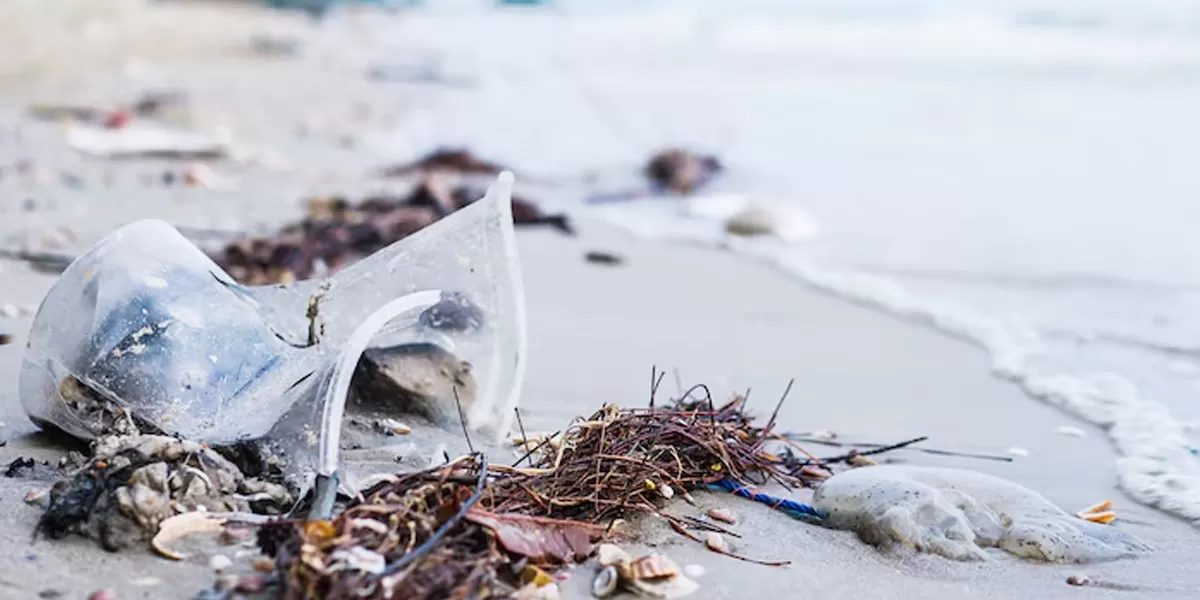India and the European Union (EU) have launched two major research and innovation initiatives under the India-EU Trade and Technology Council (TTC). The TTC was established in 2022, by Indian Prime Minister Narendra Modi and European Commission President, Ursula von der Leyen to strengthen the bilateral partnership on trade and technology. With a joint investment of Rs 3.91 billion, the initiatives focus on two coordinated calls in the areas of Marine Plastic Litter (MPL) and Waste to Green Hydrogen (W2GH), co-funded by Horizon Europe—the EU’s research and innovation framework programme—and the Government of India.
"Collaborative research is the cornerstone of innovation. These initiatives will harness the strengths of both Indian and European researchers to develop solutions that address our shared environmental challenges.", said Prof. Ajay Kumar Sood, Principal Scientific Adviser to the Government of India during the call launch.
Highlighting the increasing momentum of the EU-India collaboration, HE Hervé Delphin, EU Ambassador to India, remarked, “These research calls under the EU-India Trade and Technology Council demonstrate the dynamism of the EU India partnership, renewed by our leaders in Delhi last February. By tackling concrete issues like marine pollution and sustainable energy together, we’re driving innovation, circular economy and energy efficiency. Development of cutting-edge technologies in these areas makes both economic and environmental sense. We are committed to a cleaner, more sustainable future that will benefit both the EU and India.”
Dr Parvinder Maini, Scientific Secretary, Office of the Principal Scientific Adviser to the Government of India noted "Undertaking collaborative efforts through the joint calls in areas like marine plastic pollution and waste to green hydrogen serves testament to our shared commitment for sustainable development".
Marc Lemaître, Director-General, Directorate-General for Research and Innovation (RTD), European Commission highlighted the scale of investment being made- “Together the EU and India are putting forward €41 million for collaborative research. Our cooperation in two coordinated research calls into marine pollution and waste-to-renewable hydrogen shows our commitment to invest in a shared sustainable future.”
The first coordinated call focuses on combating marine pollution, particularly the pervasive issue of marine plastic litter. Despite global efforts, marine pollution continues to threaten biodiversity, disrupt ecosystems, and impact human health. This call, co-funded by the EU (€12 million/~Rs 1.15 billion) and India's Ministry of Earth Sciences (Rs 900 million/~€9.3 million), seeks innovative solutions to monitor, assess, and mitigate the cumulative impacts of various pollutants, including microplastics, heavy metals, and persistent organic pollutants. The resulting research will support international commitments such as the UN Decade of Ocean Science for Sustainable Development and contribute to the objectives of the EU's Zero Pollution Action Plan and India's National Marine Litter Policy.
Dr M Ravichandran, Secretary, Ministry of Earth Sciences, Government of India said that "Marine pollution is a global concern that requires collective action. This joint call will enable us to develop advanced tools and strategies to protect our marine ecosystems."
The second coordinated Call addresses the urgent need for sustainable energy solutions through the development of waste-to-green hydrogen technologies. With the global push towards clean energy, converting biogenic waste into hydrogen presents a promising avenue. This joint call, supported by the EU (€10 million/~Rs 960 million) and India's Ministry of New and Renewable Energy (INR 90 crore/~€9.3 million), aims to develop efficient, cost-effective, and environment friendly methods for hydrogen production. The research will align with the EU's Hydrogen Strategy and India's National Green Hydrogen Mission, contributing to global efforts in reducing greenhouse gas emissions and promoting energy security.
Santosh Kumar Sarangi, Secretary, Ministry of New and Renewable Energy, Government of India said that "Advancing waste-to-hydrogen technologies is crucial for our energy transition goals. This collaboration will accelerate the development of sustainable hydrogen production methods."





















